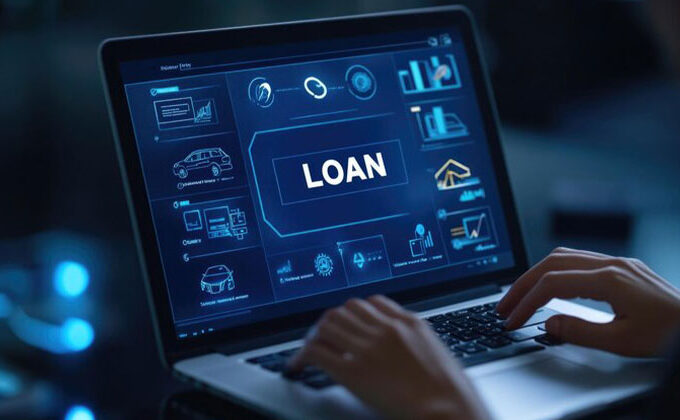Businesses may receive temporary credit shortly after depositing money into a smart safe or handing it over to a cash-in-transit service. This provisional credit allows the business to access funds in their account before the actual transfer to the bank is completed. To learn more about what provisional credit is and how it functions, keep reading.
What Is Provisional Credit?
A provisional credit is a temporary refund transferred to your account while your bank or credit card issuer looks into a dispute involving a transaction. It allows you to get access back to your money when the request is being reviewed.
Provisional credit is often used when you discover unauthorised transactions, billing errors, or duplicate charges on your statements. Although the credit can provide some temporary relief, bear in mind that it can be reversed if your claim is rejected. To avoid any surprises, it is important to understand what the procedure is for each side of a transaction.
Pros of Provisional Credit
- Immediate Access to Funds: You get temporary access to the disputed amount while the investigation is ongoing, which helps ease financial strain.
- Improved Customer Confidence: It shows that the bank values your concerns and supports you during disputes.
- Prevents Cash Flow Disruption: Especially important for individuals or businesses who rely on timely access to funds.
- No Interest or Fees: Provisional credit is issued at no cost to the customer, with no interest applied.
Cons of Provisional Credit
- Reversal Risk: If an investigation determines that the dispute is not valid provisional credit is reversed. This could catch people off guard.
- Not Always Guaranteed: Not all banks or transactions are eligible for provisional credit, especially for complex or high-risk disputes.
- False Sense of Resolution: Some customers may think the issue is permanently resolved when it’s still under review.
- Limited Availability: Some financial institutions may delay or deny provisional credit, depending on their policies and the nature of the claim.
Also read: What is Credit Shelter Trust (CST): How to Protect Tax
Why Is Provisional Credit Issued?
Various reasons can cause this type of credit issue. It commonly occurs in the following situations:
- Pending Transactions: Many banks will offer these types of credit when the transaction is waiting to be completed. This permits businesses to make use of funds or earn their profits without having to wait for the transaction to complete.
- Temporary Credit Reversal: This usually happens when a chargeback remains unpaid. In such cases, the issuing bank reverses the provisional credit, temporarily providing funds to the business or customer during the dispute process.
- Funds in Transit: When money is deposited into a smart safe, the bank credits the amount so the business can access the funds before they are officially posted to the account.
Is Provisional Credit the Same as Temporary Credit?
Yes, provisional credit and temporary credit are often used interchangeably. Both refer to a temporary refund issued by a bank while it investigates a disputed transaction. It allows customers access to funds during the review process, but the credit may be reversed depending on the outcome of the investigation.
How Does Provisional Credit Work?
Provisional credit is a temporary refund provided by banks and credit card companies as part of the course of a dispute investigation. If a client is unable to verify an unauthorized payment or a billing mistake, an institution will review the report and could issue an interim credit to the client’s account. This allows the customer to access the disputed funds while the investigation is ongoing.
The credit is not final—it helps ease cash flow and provides relief during the review process. When the issue is settled by the customer, the credit is made irrevocable. However, when the claim is rejected, the credit provision is cancelled and the funds are taken from the client’s account.
How Long Does Provisional Credit Last?
As mentioned above, the credit period can be between 4 and 7 business days. For certain businesses, this period could be shorter or longer. In other cases, protracted credit disputes pending charges can provide credit as long as the chargeback is allowed to be completed.
Can a Provisional Credit be Reversed?
Provisional credit aren’t always permanent, and they can be reversed. The bank can cancel the credit in the event that they believe the charge was legitimate. If they decide that the credit was fraudulent or incorrect the credit will become indefinite.
You may be able to avoid a provisional credit reversal if you provide evidence that shows the charge was not a mistake or was fraudulent. Be aware that dissatisfaction with an item or service purchased could be a “charge error.” However, it is not likely to suffice to convince a bank to extend the provisional credit.
Also read: What are Holiday Loans? How They Work and Best Alternatives
Alternatives to Provisional Credit
A temporary credit adjustment is a preferred choice for many businesses however, there are alternatives to consider. Based on the requirements of your company, the cash flow, and the way the POS debit system deals with cash, any of the choices below could provide an alternative.
Traditional Bank Credit
A traditional bank credit occurs the case when a company or business is granted the ability to access a previously approved amount money, usually via the basis of a credit card. Similar to an advance credit, businesses is able to use the money at any point. Certain businesses might prefer this method if they are not able to access to a safe with a smart lock or if they are unable to access cash-in-transit pick-ups.
Business Loans
Business loans occur where a bank offers cash to a company or retailer in the hope that the company will pay back the bank. While this will provide instant cash flow to the business but the additional interest could be difficult in the end.
Trade Credit
Trade credit is when a company agrees to collaborate with a different business, which is usually the supplier. The company receives products or services in advance, and the other parties agree that payment will occur after that, usually within 30-60 or even 90 days. Trade credit is a way to provide cash and merchandise to businesses for a predetermined amount, but also allows them to repay the loan.
Invoice Financing
Invoice financing is the same as trade credit. It occurs the case when a lender or bank issues an invoice for a company to ensure payment in the future. This provides the business quick access to a tiny percentage of the amount invoiced to the company, with the promise of paying it back in the future. This could allow access to the invoice without any cost.
How Provisional Credit Affects Business Operations
This type of credit can provide more than the benefits mentioned above. It offers more specific effects for companies and their operational needs, like:
- Enhanced cash flow: Not only does it keep cash flow, it can improve it too. When companies have an extra amount of cash in their accounts and they are able to use it to keep running and improve their operation.
- Improved Reporting Accuracy: Improved accuracy of reporting, particularly when combined with Integrated Cash Logistics, and our system allows your business to operate more smoothly and ensures that your data is exact.
- Flexible Operation: Provisional credit can also give you the flexibility that your business requires to address potential problems when they arise.
Conclusion
Understanding how Provisional Credit works is vitally important to both consumers and businesses alike. It provides temporary financial cushion during transaction disputes to preserve cash flow and trust between financial institutions and their customers; but keep in mind it may be reversed depending on investigation outcomes – knowing its advantages, disadvantages and alternatives is vitally important when managing personal or corporate finances and responding effectively when disputes arise.















Leave a comment